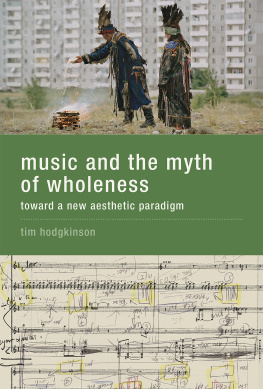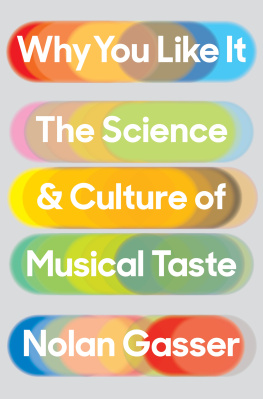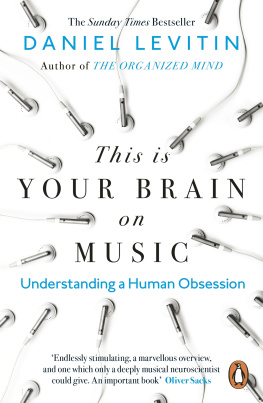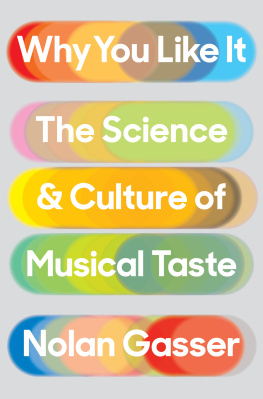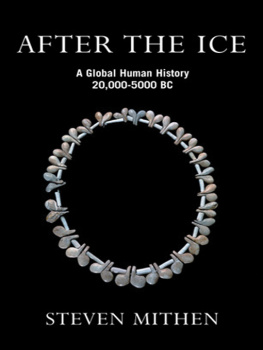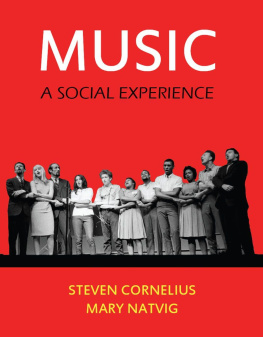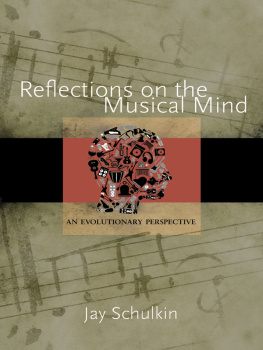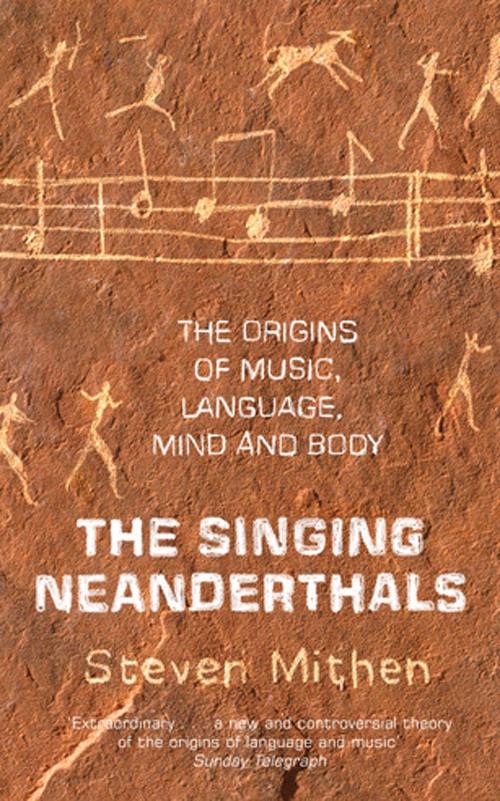A WEIDENFELD & NICOLSON EBOOK
First published in Great Britain in 2005 by Weidenfeld & Nicolson.
First published in ebook in 2011 by Weidenfeld & Nicolson.
Copyright Steve Mithen 2005
The moral right of Steve Mithen to be identified as the author of this work has been asserted in accordance with the Copyright, Designs and Patents Act 1988.
All rights reserved. No part of this publication may be reproduced, stored in a retrieval system or transmitted in any form or by any means without the prior permission in writing of the publisher, nor be otherwise circulated in any form of binding or cover other than that in which it is published without a similar condition, including this condition, being imposed on the subsequent purchaser.
Every effort has been made to contact holders of material quoted and reproduced in this book, but any omissions will be restituted at the earliest opportunity.
A CIP catalogue record for this book is available from the British Library.
ISBN: 978 1 7802 2258 5
Orion Books
The Orion Publishing Group Ltd
Orion House
5 Upper St Martins Lane
London WC2H 9EA
An Hachette UK Company
www.orionbooks.co.uk
Steven Mithen is Professor of Early Prehistory and Head of the School of Human and Environmental Sciences at the University of Reading.
A genuine tour de force unquestionably Mithens best book to date
British Archaeology
In his extraordinary book, Steven Mithen uses anecdotes and a panoply of forensic evidence from linguistics, paleoanthropology, archaeology, psychology and neuroscience to present a new and controversial theory of the origins of language and music
Adrian Wolfson, Sunday Telegraph
As praiseworthy as Steven Mithens previous titles, The Prehistory of the Mind and After the Ice This is a beguiling book with enough documentation to satisfy the cynical linguist an up-to-date and original survey of human origins from one of archaeologys leading writers
Mike Pitts, Sunday Times
Mithens rich, dispassionate study of the origins of music, language and mime goes back to music-making among primates as the basis for understanding what role music might play in the human mind
Norman Lebrecht, Evening Standard
The book is extremely well-written and Mithens clear and infectious enthusiasm will make it a good introduction for non-specialists interested in the topic. I can recommend it to anyone interested in the biology and evolution of music
Tecumseh Fitch, Nature
Begins with a detailed analysis of music and musical ability, drawing on musicology, psychology and neurobiology to build a comprehensive and erudite picture of musics capacity to move us a long overdue book, which approaches human evolution from an intriguing as well as entertaining angle
R. I. M. Dunbar, TLS
A joy, packed with the latest research and intriguing new suggestions and ideas
Richard Wentk, Focus
The propensity to make music is the most mysterious, wonderful and neglected feature of humankind. I began writing this book to describe my theory as to why we should be so compelled to make and listen to music. I wished to draw together and explain the connections between the evidence that has recently emerged from a variety of disciplines including archaeology, anthropology, psychology, neuroscience and, of course, musicology. It was only after I had begun that I came to appreciate that it was not only music I was addressing but also language: it is impossible to explain one without the other. As the work progressed, I also realized that their evolution could not be accounted for without being thoroughly embedded in the evolution of the human body and mind. And so the result is necessarily an ambitious work, but one that I hope will be of interest to academics in a wide range of fields and accessible to general readers indeed, to anyone who has an interest in the human condition, of which music is an indelible part.
When I mentioned to my family that I intended to write a book about music there was a moments silence and then laughter. Although I frequently listen to music, I can neither sing in tune nor clap in rhythm. I am unable to play any musical instrument. Sue, my wife, sings; she and my three children play the piano. Heather, my youngest daughter, also plays the violin. It saddens me that I will never be able to join one of them in a piano duet or accompany them with a song. Ive tried the latter and it is a deeply unpleasant experience for all involved.
Writing this book has been an attempt to compensate for my musical limitations. When my children were valiantly struggling with piano practice in one room, I would be doing the same with the theory of music in another. Its been the closest we will ever get to making music together. If they hadnt worked so hard, neither would I, and this book would never have been written. So I am most grateful for their efforts; I am both proud and envious of their musical achievements.
Nicholas Bannan, my University of Reading colleague, helped to stimulate my longstanding but latent interest in how music evolved by his infectious enthusiasm for this topic and his spontaneous singing demonstrations.
I began my research vicariously by supervising student dissertations on relevant subjects, notably by Iain Morley and Hannah Deacon. These further excited my interest and I immersed myself in the relevant literature. To my immense pleasure, I then found that I could justify long hours simply listening to music while digesting what I had read and thinking about what it might mean.
During the course of my research I have benefited greatly from the help and advice of many friends, colleagues and academic acquaintances. My greatest academic debt is to Alison Wray. Her work has been the most influential on my own thinking. She kindly commented on the first draft of my manuscript and provided copies of her unpublished papers. Kenny Smith also kindly read and commented on the whole draft manuscript, while Jill Bowie, Dick Byrne, Anna Machin, Isabelle Peretz and Ilona Roth did the same for selected chapters. I am most grateful for their advice and support.
I would also like to thank Brent Berlin, Margaret Clegg, Ian Cross, Valerie Curtis, Franceso DErrico, Robin Dunbar, Christopher Henshilwood, Maggie Tallerman and Andy Whiten. They pointed me to publications, discussed ideas, answered email queries and provided me with copies of unpublished manuscripts.
Nicholas Bannan and I co-organized the Music, Language and Human Evolution workshop that took place at the University of Reading in October 2004, kindly funded by the European Science Foundation. This occurred after I had completed the first draft of this book and it gave me the opportunity to meet and discuss with many of the academics whose work I had cited but whom I had not previously met. I am most grateful to all the participants for that most stimulating event, which provided me with further information, ideas and inspiration to complete the book: Margaret Clegg, Ian Cross, Pedro Espi-Sanchis, Tecumseh Fitch, Robert Foley, Clive Gamble, Tran Quang Hai, Bjrn Merker, lain Morley, Isabelle Peretz, Ilona Roth, Johan Sundberg, Elizabeth Tolbert and Sandra Trehub.
While I have benefited enormously from discussion and debate with all of those mentioned above, any errors or fuzzy thinking within this book are unquestionably my responsibility alone.
During the course of my writing I have been fortunate to have had clerical support from Chris Jones. She eagerly checked bibliographic references, undertook Internet searches and photocopying, and provided all manner of miscellaneous help that made writing this book possible in the gaps in the inundation of meetings and paperwork that; comes with university jobs today. I am also grateful to Tom Wharton, my editor at Weidenfeld & Nicolson, who provided considerable advice on my draft manuscript, to the books immense benefit.



